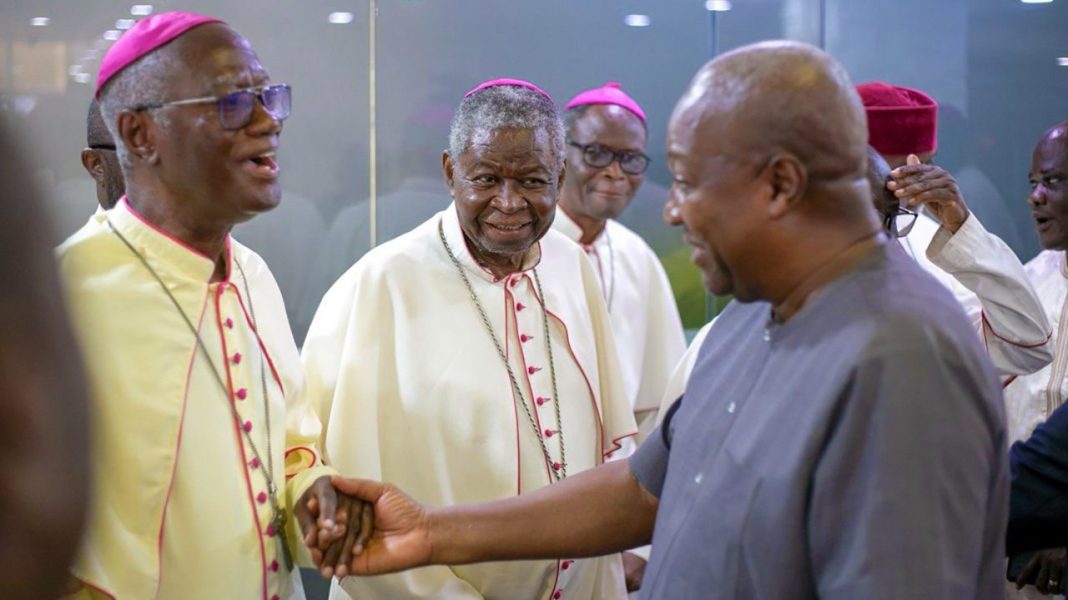The Ghana Catholic Bishops’ Conference has issued a searing indictment of the country’s ecological destruction caused by illegal mining, calling for immediate and systemic intervention to halt what they describe as a “threat of national proportion.”
Gabriel Asempa Antwi – Accra.
In an address delivered at Jubilee House during a formal audience with Ghanaian President John Dramani Mahama on Thursday, president of the Conference, Bishop Matthew Kwasi Gyamfi, decried the rampant degradation of Ghana’s forests and rivers, warning that the crisis is as much moral as it is environmental.
The ecological damage is grave
“Mr. President, we are also burdened by the devastation of illegal mining. What began as subsistence activity has grown into a threat of national proportion,” he said.
He outlined that over 4,000 hectares of forest cover has been lost within two years, and rivers such as the Pra, Offin, and Ankobra now reduced to “bywords for environmental collapse.”
“The ecological damage is grave, but the social and moral disintegration it breeds is just as perilous,” Bishop Gyamfi added. “We must act—not only with force, but with foresight. Enforcement must be balanced by credible and sustainable alternatives for those driven by desperation,” said Bishop Gyamfi.
An action plan to arrest Galamsey
In one of the most detailed Church-led policy interventions in recent years, the Bishops proposed a comprehensive 7-point action plan to arrest what is locally known as galamsey.
The first is, Repeal of Permissive Legal Instruments: They called for a review and repeal of sections of the Minerals and Mining Act, 2006 (Act 703) and its associated regulations which permit unchecked licensing.
Moratorium on New Licenses: An immediate freeze on new artisanal and small-scale mining licenses until environmental and social reviews are complete.
Need for a temporary state of emergency
The Bishops also suggest a Targeted State of Emergency: This would be a temporary state of emergency in severely affected zones to halt mining, allow military-led reclamation, and the restoration of lawful governance.
Decentralised Oversight: The formation of district-level mining taskforces with participation from civil society and the Church to monitor and report violations.
Eco-Social Mining Audits: Public, independent audits of the environmental impact, social benefits, and legal compliance of all current mining operations.
Environmental Restoration Fund: Enforce mandatory reclamation bonds and establish a co-governed Restoration Fund involving the State, Church, and Traditional Authorities.
Alternative Livelihood Development: Use part of the Minerals Development Fund to support vocational training and eco-friendly enterprises like agroforestry and aquaculture.
In a technologically progressive recommendation, the bishops also proposed a digital mineral traceability system based on blockchain to stem smuggling, enforce legal compliance, and recover lost state revenues.

